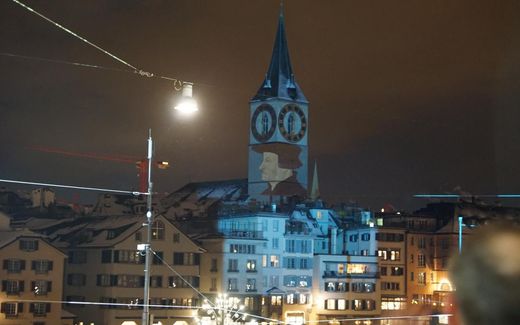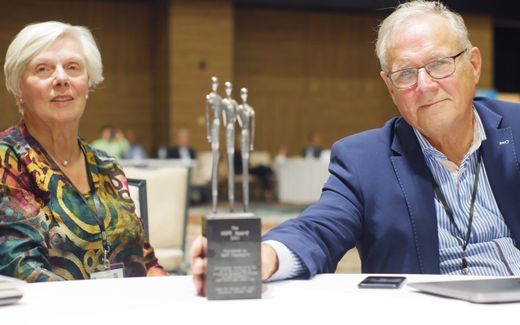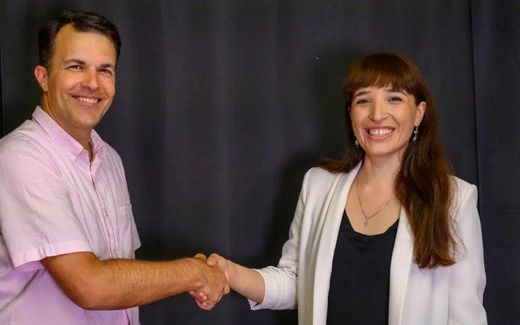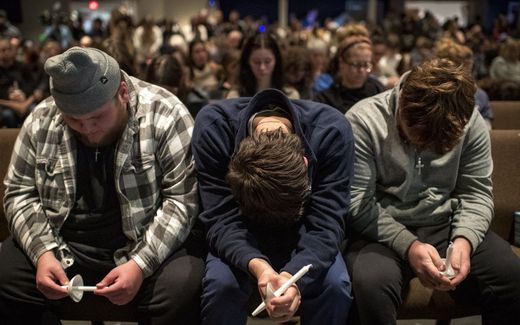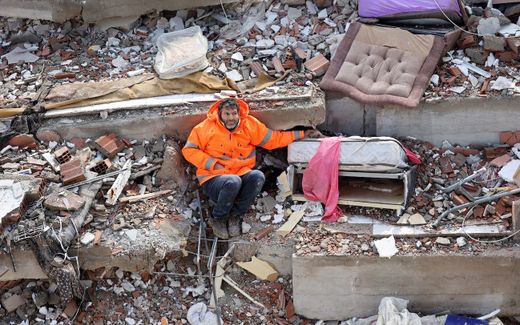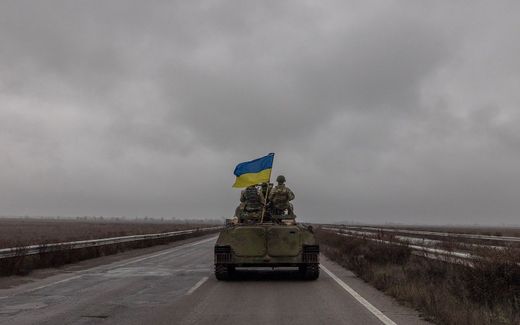Policy officer German Evangelical Alliance resigns
26-04-2023
Central Europe
Martin Schlorke, PRO
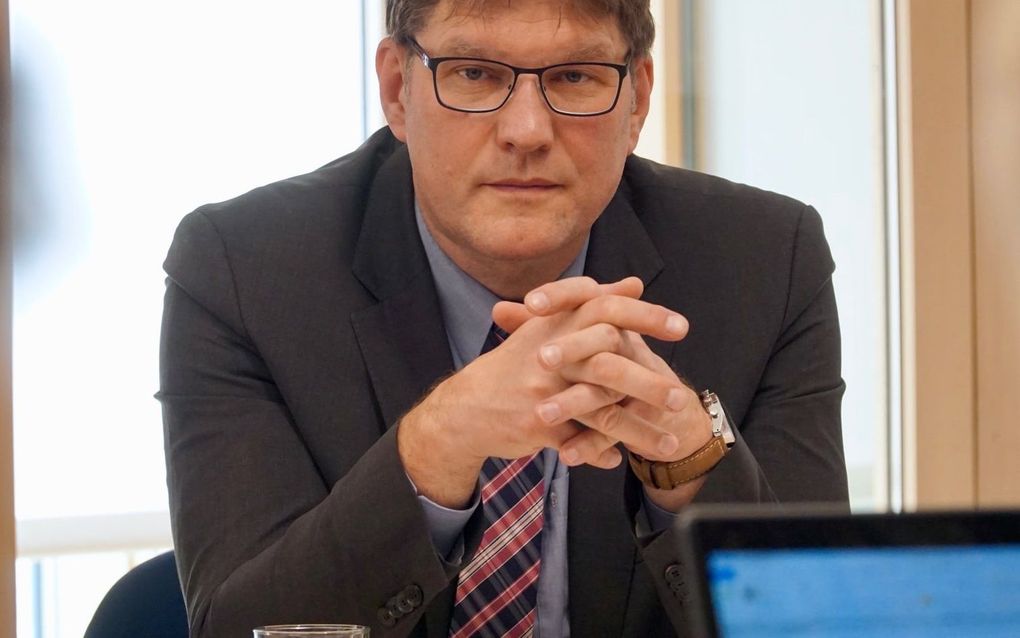
Uwe Heimowski, policy officer from the German Evangelical Alliance, switches to Tearfund. Photo Facebook, Uwe Heimowski
Central Europe
After six and a half years, Uwe Heimowski says goodbye to his position as a political officer of the Evangelical Alliance. In an interview with the German magazine PRO, he makes up the balance of successes and defeats and why he is looking forward to his new job.
PRO: Mr Heimowski, after six and a half years, you are ending your work as Policy Officer of the Evangelical Alliance in Germany (EAD) and moving to Tearfund. What feeling prevails: Pain of parting or anticipation?
Uwe Heimowski: "I have one laughing eye and one crying eye. All in all, I have been working in honorary positions since 2000 and then full-time at the EEAS and 14 years in Berlin politics. That's why I notice a certain sadness in myself. Anything else would be strange.
Nevertheless, I also have a smile on my face – and not only because of my new job at the aid organisation Tearfund. The Evangelical Alliance is reorganising itself and will get good reinforcement from the new policy officer Frank Heinrich. Also, in general, it has a good position in Berlin. Moreover, the important work of the Alliance in Berlin continues."
**About Tearfund...
"... I am very much looking forward to it. A very committed team awaits me there. It's international work that makes a real difference for people. And it is a completely new challenge for me. Even at my age (laughs), I must learn many new things and communicate more in English. I really want to do that."
Nevertheless: Why have you now decided to say goodbye to the EAD?
"There were two decisive reasons. One was a certain fatigue in politics. Secondly, my health played a role; I had a heart attack in 2020. The pace in Berlin is simply incredible. You always have to react quickly to developments. In addition, as a commissioner, I was in the spotlight, and sometimes –to put it mildly– I was criticised from many sides. For some, I was too pious; for others, not pious enough. That is not good for our health."
From 1 May, you will be Chairman of the Board of Tearfund Germany, so you have a lot of responsibility, and your business trips will then go as far as Africa. That still sounds like a lot of stress.
"Of course, it is a big responsibility. But I am happy to carry it. There is also positive stress. The most stressful thing was that every statement I made as a representative of the EEAS made me vulnerable to external attacks. I don't have that any more with Tearfund. Of course, there is always the question of how to time the trips. I will continue to travel in Berlin and Germany, but I am giving up some honorary posts to concentrate on my work at Tearfund."
Why did you choose Tearfund?
"As I said: great people, concrete projects –and a convincing concept: CCT– Church Community Transformation. Tearfund empowers communities to change society positively. I find the interplay of faith and community spirit very good. Moreover, Tearfund is a foundation of the Evangelical Alliance in Great Britain, so there is continuity for me."
In a way, Frank Heinrich takes over your tasks as a representative in Berlin, but he is also a board member. Can he meet the challenge of Berlin at all?
"Frank Heinrich's task must be understood in the context of the structural reform of the EEAS. The Alliance's representative at the Bundestag and the Federal Government no longer exists, nor does the Secretary-General. The political tasks are now carried out by a board of directors supported by the staff in the Berlin office. So you could say that the Berlin tasks are now at the board level, i.e. higher up.
Frank Heinrich also has the advantage that, as a former member of the Bundestag, he sometimes has better access to and an extensive network within the Bundestag."
So, is this even better for the Alliance's Berlin work now?
"I can't say whether one is better; that remains to be seen. What is clear, however, is that it will be different. In the first years of our presence in Berlin, the Alliance was represented voluntarily. Later, Wolfgang Baake and I worked here full-time. Now there is another change. Everything had its time and its charm. In this respect, it is difficult to compare."
In addition to the Alliance, the two large churches or the free churches are also represented in political Berlin by representatives. Why is the Alliance also necessary on the ground?
"Because we represent many revivalist Christians whose interests would otherwise find little hearing. And there are always issues that would not be an issue if we did not make them an issue. Religious freedom or protection of life, for example. And sometimes our work also has very concrete effects."
*Such as?
"I was on the island of Lesbos in 2020 and saw the situation of the people in the refugee camps there. Back in Germany, I was supposed to report on my trip to the Protestant Working Group (EAK) of the CDU. Former ministers and a state secretary were sitting there. A short time later, there was a devastating fire in the camp. The head of the EAK then called me and asked what relief measures I would recommend. I told him about the more than 1,000 young mothers or pregnant women that Germany could take in. And that is exactly what happened. Our recommendation was at least a piece of the puzzle to help people in need."
Is there also a debate that has remained particularly negative in your memory?
"What was really frustrating for me was the area of the protection of life, or rather the development of the issue and the inability of people to discuss it."
By development, you mean the abolition of paragraph 219a (the ban on abortion advertisements, ed.)?
"Exactly. Some videos did not at least do justice to the importance of the topic. Also that Paragraph 218 (criminalisation of abortion, ed) is up for debate or that blood tests for Downs Syndrome have been introduced for pregnant women. In Germany, hardly any children are born with Downs Syndrome. That is a catastrophe. People are sorted out just because they have one chromosome too many.
I don't understand why people don't understand this. On the one hand, people stand upright! – for women's rights, for minorities, against discrimination and against racism. On the other hand, we don't see that people with disabilities are killed in the womb. Unfortunately, there is no willingness to talk about this disproportion."
The [right-wing populist party] AfD also tries to address issues such as the protection of life or the persecution of Christians. Does that automatically make them an essential contact for you?
"As an alliance, we talk to MPs from all parliamentary groups in the Bundestag."
Also, with the AfD?
"Yes, we are neutral. At the same time, I have always taken a clear stance against the right and, for example, described the AfD election result as a shock in an article for PRO. I don't trust the AfD's cause. In a question to the federal government, the AfD once wanted to know how many inbred refugee births there were – with the connotation: 'Do such children have to be born here in Germany?'
The AfD presents itself as pro-life but actually only wants genetically German life. That is a farce. The AfD does not really stand up for persecuted Christians either but uses their fate to denigrate Islam and thereby stir up Islamophobia. It's a pity when Christians fall for it."
When you took office, you told PRO that in ten years, you would like people to say about your work: Heimowski has made a difference. Have you?
"I can give an example as an answer. A pastor colleague told me that he could not feel part of this Evangelical Alliance world for a long time. But since I have been working in Berlin, he said, our voice has become much more differentiated. I have been able to move people like him to perceive EAD and its concerns differently. I have heard that from many sides – from politicians as well as from people in the Christian scene. That is something."
This article was translated by CNE.news and published by PRO on April 20, 2023
Related Articles


